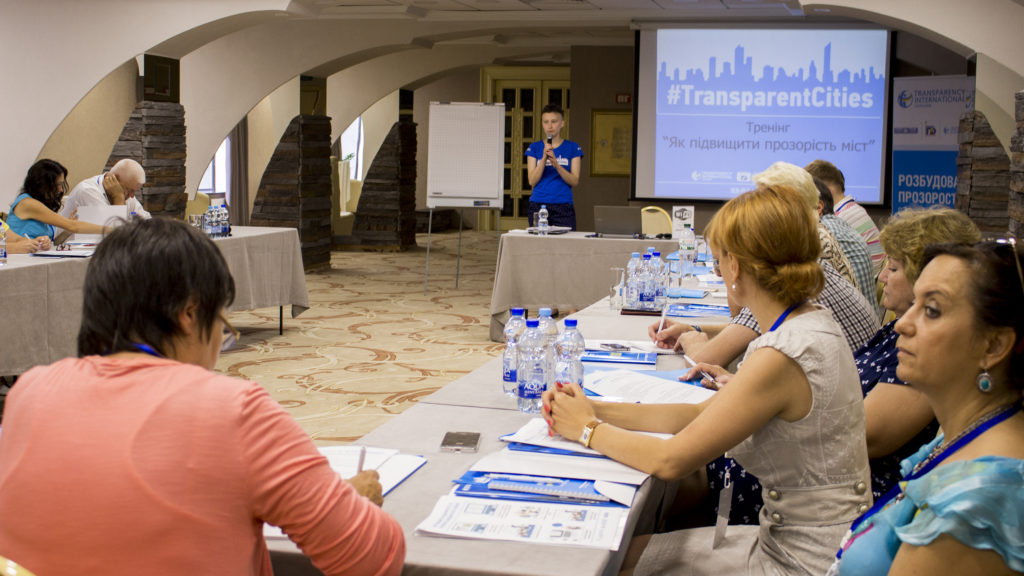

How to detect violations in public procurement, improve the quality of social services and develop the gender-balanced budget? The set of regional training for transparency rise in cities started on the 3rd of August in Kyiv. After the training, the representatives of the council, activists and journalists from Kyiv and Chernihiv regions will offer anti-corruption initiatives aimed at improving transparency level and accountability of the municipal councils. The set of training will have been delivered in other 9 cities of Ukraine by the end of September.
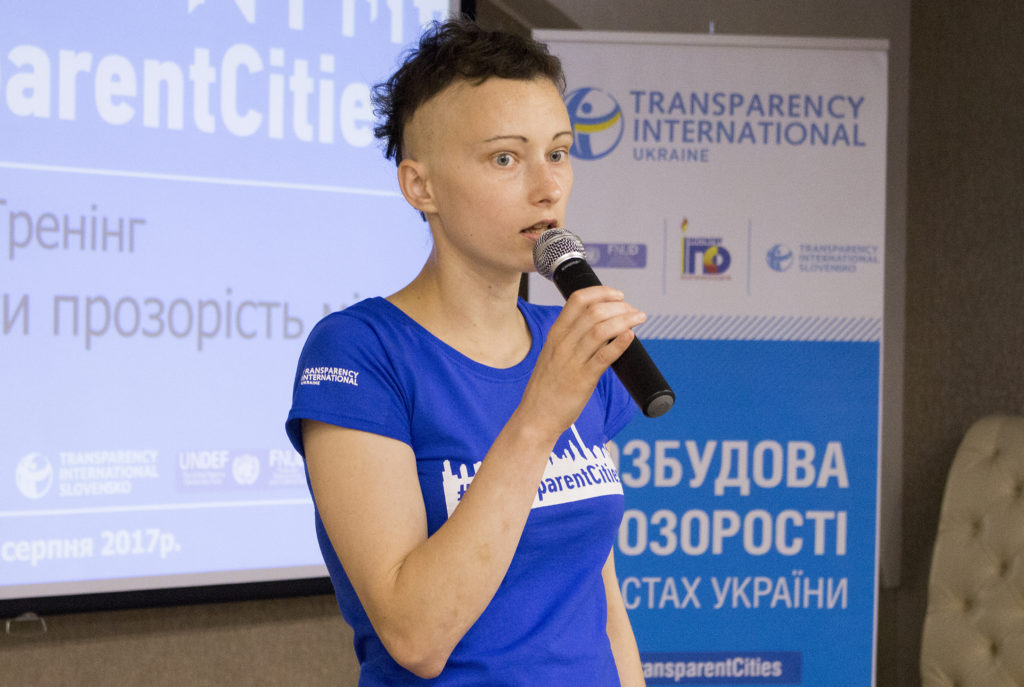

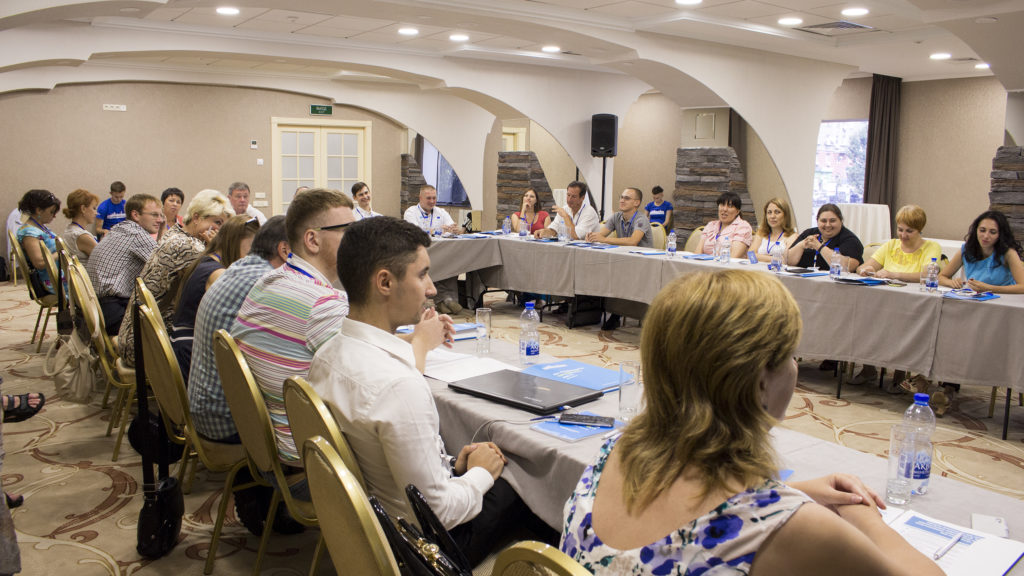

A two-day workshop on the best anti-corruption approaches encompasses seven spheres – public procurement, social services, housing issues, budgeting, communal enterprises, human resource issues and conflict of interests. Most cities-participants of the Kyiv training got low points from the analysts of the research on transparency of 100 biggest Ukrainian cities in these spheres. In particular, all cities but Kyiv (which got 2,5 points) got 1 point or less in the social services sphere. For budget process all cities except for Nizhyn and Chernihiv received less than half of points out of 8. The top three councils of the training are from Kyiv (5th place, 51,5 points), Nizhyn (7th place, 49,9 points) and Zhytomyr (12th place, 42,76 points).


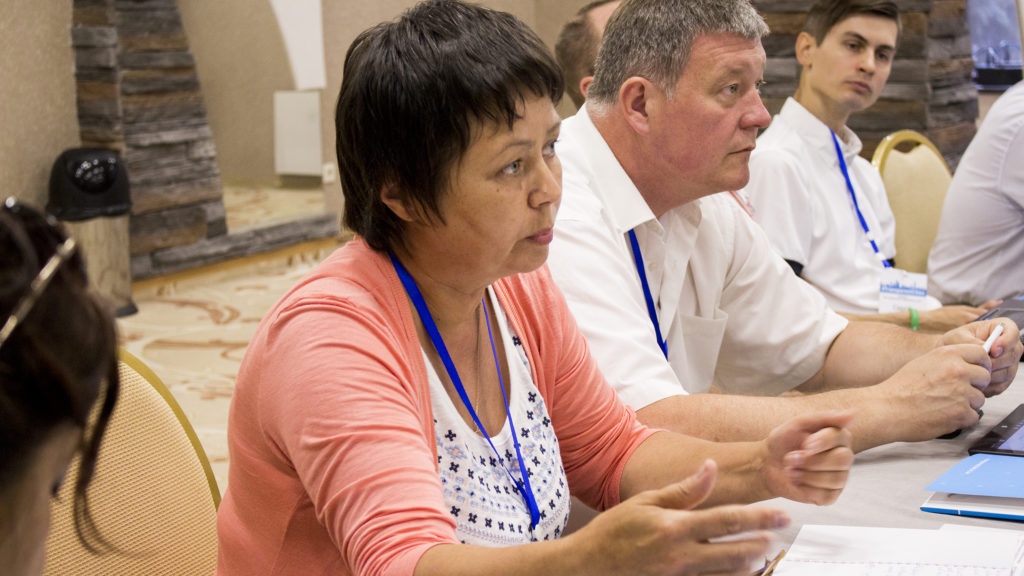

“One of the spheres that lack transparency and publicity (which makes the corruption schemes possible) is the housing policy. We have developed three easy steps which will help resolve the issue and leave no reasons for complaints in regards to this sphere. Firstly, it is necessary to make the work of the committee on housing issues open. Secondly, to take stock and publish a list of residential property left under the management of the community. Thirdly, to organize the online queue for the repairs of multistory residential buildings as it becomes more and more important. These three steps will strike the corruption and sort out things in the sphere of housing policy within one community,” Oleksandr Solontai, the chief analyst of the project Building Transparent Cities in Ukraine and the expert of the Institute of political education believes.
Mykhailo Nevdakha, the coach on the monitoring tools ProZorro of the project TI Ukraine, has explained at the workshop how to detect violations during procurement biddings and use for this purpose the analytics program bi.prozorro.org alongside the monitoring portal for public procurement DoZorro.
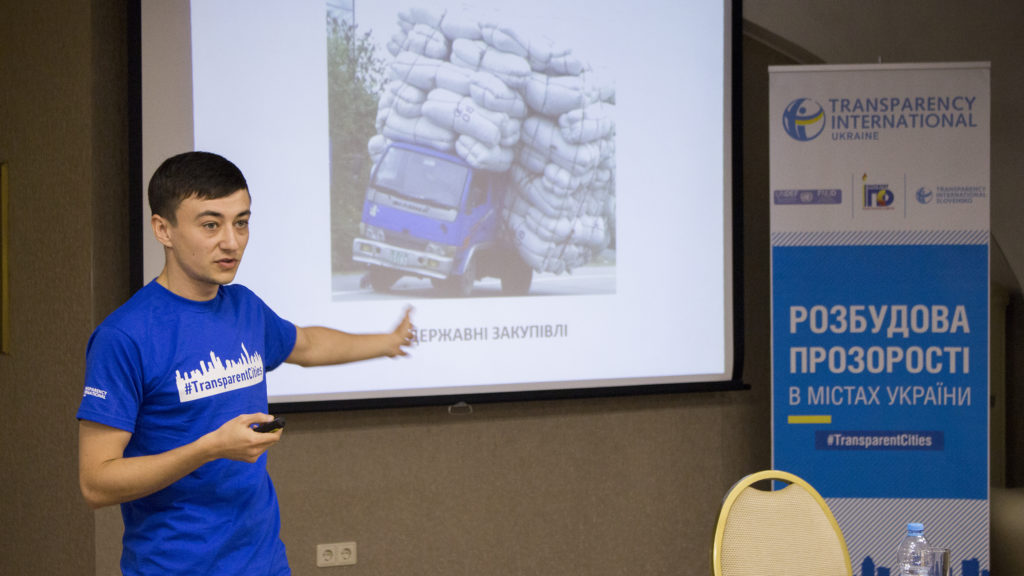
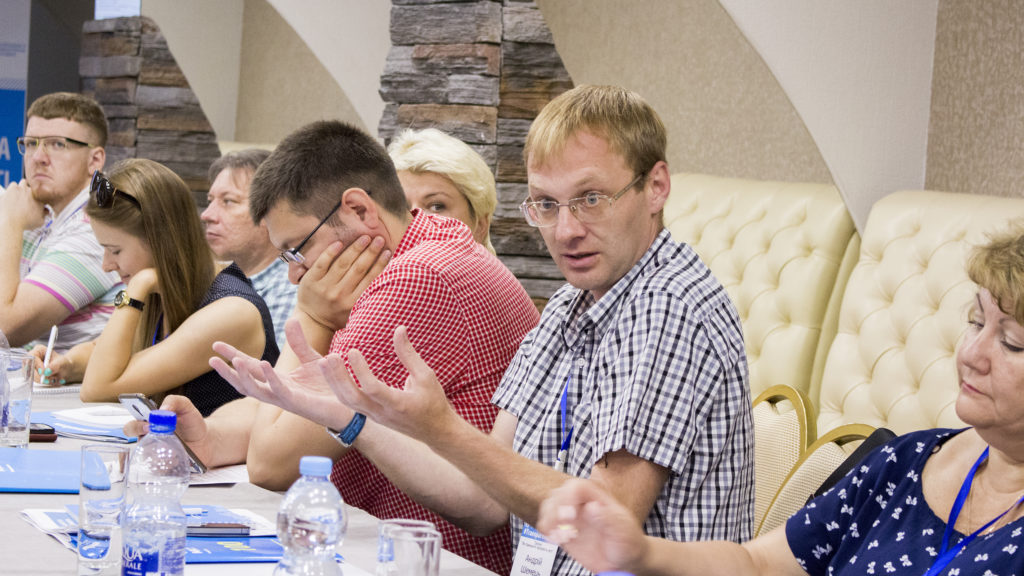
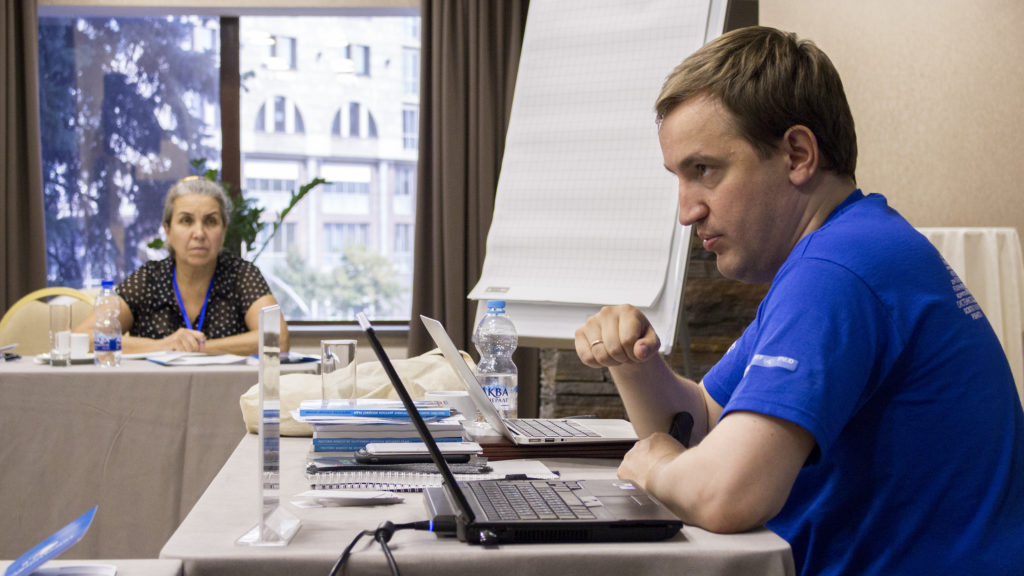
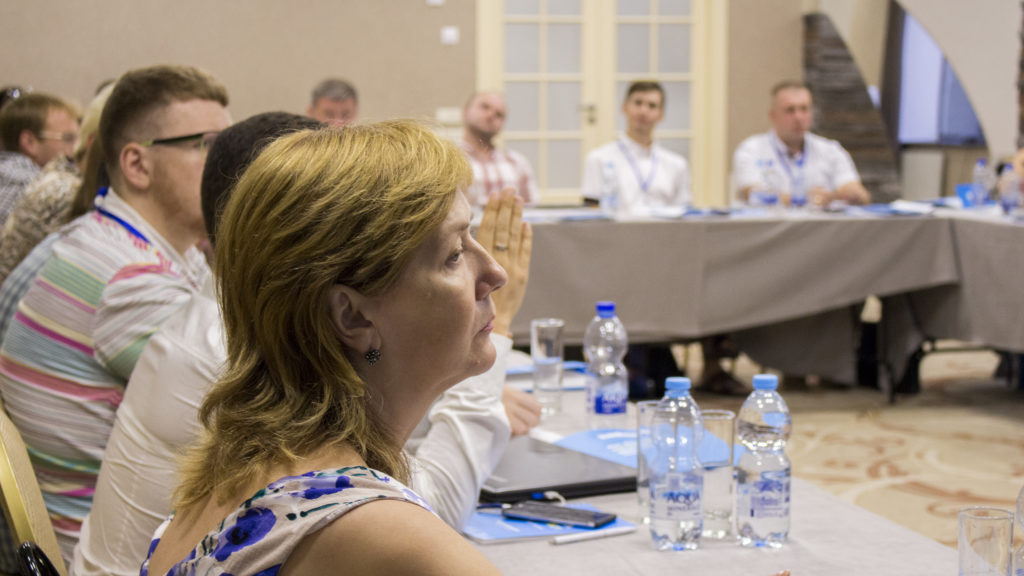
“Currently we are delivering the training for public activists, representatives of local authority and journalists. As soon as the pieces of training have been delivered in ten cities, Transparency International Ukraine will invite tenders to support anti-corruption initiatives. Now the participants are being taught how to improve the transparency level. Afterward, they will have the opportunity to apply theory to practice. We believe that particularly by joint efforts we will manage to reach transparency in cities – public activists should push the authorities, whilst the journalists should control them,” Kateryna Tsybenko, the coordinator of the project Building Transparent Cities in Ukraine, commented.
The research on transparency in 100 biggest Ukrainian cities was conducted by the Ukrainian chapter of the global movement Transparency International in cooperation with the Institute of political education. Top-cities were evaluated and ranked by 91 criteria in 13 spheres, in particular budget process, the use of lands, human resource issues, public procurement, availability of online services etc.
The set of training on improving transparency in cities will take place in 9 other Ukrainian cities. For more information about the program and registration, follow the link http://bit.ly/2tJ1H9G
The project Building Transparent Cities in Ukraine is funded by the United Nations Democracy Fund.






